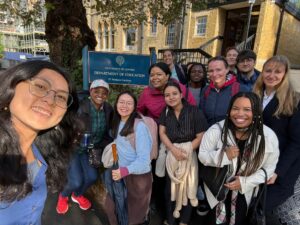In praise of the CGHE Autumn School

In 1871 Harvard launched its first Summer School. Asa Gray, the Harvard Professor of Natural History, had just built a new Botanical laboratory, and the Summer was the best time to teach. By all accounts, Gray was not a great lecturer, but his practical laboratory-based Summer classes quickly became popular. They were open to all who were qualified to attend, and attracted attendees from across the US. The first attendees were nearly all women teachers and scientists, who until that point had no access to Harvard facilities (Pfister 2010). The Victorian enthusiasm for science and learning was also reflected in the university extension movement that was also gathering pace in the United Kingdom, as Oxford and Cambridge lecturers delivered lectures across the country, especially to working class communities (Goldman 1995). Today, Summer schools, retreats, and writing workshops are ubiquitous across the academic world. They can be places of experimentation, of intensive learning, and of opportunities for thinking and collaborating in spaces beyond the curriculum and canon.
The 2025 CGHE Autumn school, the first to be held by CGHE, continued this inclusive and welcoming academic tradition. Unlike the long-established doctoral summer school hosted by friends at the Boston-based Centre for Higher Education, CGHE decided to design a School around the needs and priorities of postdoctoral researchers. The immediate period after doctoral graduation can be particularly daunting and lonely. Postdoctoral researcher no longer have the affiliation and support of their graduate institutions and have to manage the existential precarity of a series of short term research or teaching contracts, all the time trying to build up a publication record and research profile.
This year’s school, themed around the topic of epistemic justice and policy repair, brought together 20 early career researchers from across the world, for three days of conversation and communality, boosted by good food and stimulating company. The aim was to share research ideas, reflect on career journeys, and develop publication plans. CGHE was particularly grateful to have thought provoking inputs from Melanie Walker, Arathi Sriprakash and Rachel Brooks, as well as the support of an inspiring set of facilitators and presenters, including our deputy directors Thandi Lewin, Lee Rensimer and Ka Ho Mok. The presentations and programme are all available here. Thanks too to Uncomfortable Oxford for another great tour. The photos capture a flavour of the atmosphere and enthusiasm. Huge thanks go to all our 20 pioneers for their contributions and energy. We learnt a lot together, and we will be back next year with a more focused set of grant writing and publication drafting activities.
Pfister, Donald H Asa Gray and Harvard Summer School Harvard Papers in Botany, 15(2) : 305-308
Goldman, L. (1995). Dons and Workers: Oxford and Adult Education since 1850, Oxford University Press.

